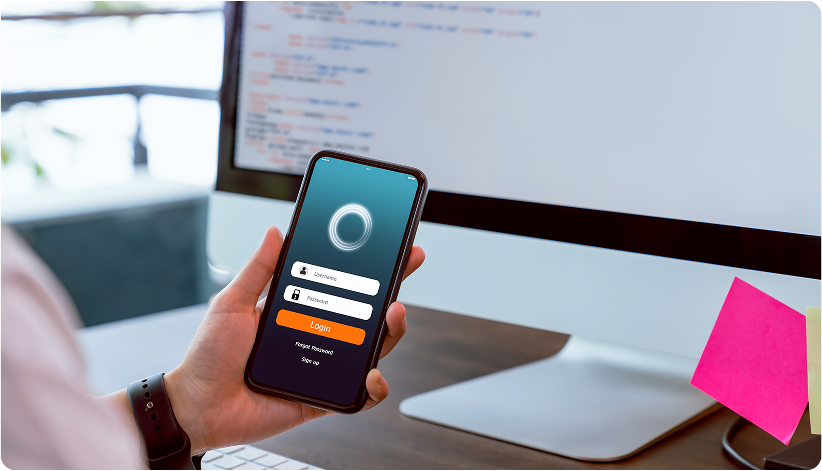
Introduction
The Android app market is vast and constantly evolving. With millions of apps available on the Google Play Store, it can be a daunting task for developers to create an app that stands out in such a crowded space. But what truly makes an app successful? The answer lies in its features. A great app is more than just a functional tool; it’s an experience that captivates users, solves problems, and keeps them coming back. Whether it’s a sleek user interface, powerful AI integrations, or seamless performance, choosing the right features can make or break your app.
In this blog, we’ll explore the key features every successful Android app should have based on the latest trends and technologies. These features will help you create an app that exceeds user expectations and ensures long-term success in a competitive market.
Why Choosing the Right Features is Crucial for Android App Success?
Picture this: You’ve just downloaded a new Android app that promises to transform your daily routine. Eager to give it a try, you open it, only to be immediately disappointed by a confusing, cluttered interface, slow loading times, and a lack of essential features. Frustrated, you quickly delete the app and move on to the next one, never giving it a second thought.
This scenario is far too common for users, and it highlights a crucial truth: the success of an app depends heavily on its features. In today’s competitive app market, users have high expectations. They demand smooth, intuitive experiences, quick performance, and value-driven functionality. If your app doesn’t deliver on these fronts, users won’t hesitate to uninstall it, regardless of how innovative the idea behind it might be.
Choosing the right features for your app ensures it stands out in a crowded marketplace, meets user needs, and keeps them engaged. Whether it’s offering a personalized experience through AI or integrating real-time performance optimization, the features you include can determine your app’s long-term success and user retention.
Role of AI and Machine Learning in Android App Development
Artificial Intelligence (AI) and Machine Learning (ML) are revolutionizing Android app development, making apps smarter and more personalized. These technologies are transforming how apps work by helping them understand user behaviour, provide tailored experiences, and even make decisions on their own. Think of features like predictive text, voice recognition, image recognition, and fraud detection, they’re all powered by AI, making apps more responsive and intuitive.
But the benefits don’t stop there. AI also boosts app performance. It can optimize how the app uses resources, ensuring smooth operation even on older or lower-end devices. Additionally, AI helps adapt the app’s performance based on the user’s device, so it always runs at its best. For developers, AI provides real-time insights and analytics, making it easier to track how users are interacting with the app. And with Machine Learning, apps can learn from user actions, helping developers continuously improve features to meet changing needs and keep users engaged

25 Top Features Every Successful Android App Development Should Have
To ensure that your Android app stands out in a crowded marketplace, integrating the following 25 features is essential:
User Experience Features
These features directly impact how users interact with your app and their overall satisfaction.
1. Simple and Intuitive User Interface (UI)
A user-friendly UI is key to keeping users engaged. If your app is hard to navigate, users will likely give up on it quickly. A clean, easy-to-use design with simple navigation makes your app more accessible and enjoyable for users.
2. Dark Mode and Customizable Themes
Dark mode has become popular because it helps reduce eye strain and saves battery on OLED screens. Allowing users to switch to dark mode and choose from different themes adds a personal touch and boosts overall satisfaction.
3. Gesture-Based Navigation
Gesture-based navigation lets users control the app with simple swipes or taps instead of buttons. It makes the app feel more modern and easier to use. This is especially helpful for one-handed or hands-free navigation.
4. Multi-Language and Localization Support
If your app targets users across different regions, multi-language support and localization are essential. Providing localized content makes your app more accessible and user-friendly to a global audience.
5. App Accessibility Features (Voice Over, Screen Readers, etc.)
Making your app accessible to users with disabilities is essential for inclusivity. Features like VoiceOver, screen readers, and adjustable text sizes help ensure more people can use your app comfortably.
Performance and Speed Optimization Features
These features focus on improving the performance and responsiveness of your app.
6. Fast Loading Speed and Performance Optimization
App speed and performance are key to keeping users. Slow loading and lag can frustrate users, causing them to uninstall the app. Optimize your app to load quickly, even on basic devices, for a smooth user experience.
7. Offline Functionality for Seamless Access
Providing offline functionality ensures that users can still access important features and data even without an internet connection. This is especially useful for apps used in areas with weak or no internet, or for users with unreliable network access.
8. Multi-Device and Cross-Platform Compatibility
Your app should work smoothly on different devices like smartphones, tablets, and wearables, providing a consistent experience. Cross-platform support also lets users switch between devices without losing progress or data.
Personalization and Smart Features
Features that use AI and smart technology to personalize the experience for users.
9. AI-Powered Image Recognition
AI-powered image recognition helps apps identify objects, text, or people in images. This feature is useful in areas like e-commerce, security, and healthcare, improving functionality and user experience.
10. Voice-Activated Search and Commands
Voice search and commands make using your app easier, especially for users on the go or with accessibility needs. This feature is becoming more important as voice assistants like Google Assistant grow in popularity.
11. Predictive Text Input and Smart Suggestions
AI-powered predictive text and smart suggestions make typing faster and more accurate. They help users complete tasks quickly, improving the overall experience.
12. Personalized Content Recommendations
Apps that personalize content, like news, products, or media, based on user preferences are more likely to keep users engaged. Machine learning analyses user activity to provide customized recommendations.
13. Chatbots and Virtual Assistants
AI chatbots and virtual assistants offer instant customer support and help users navigate the app. They boost engagement and reduce the need for human assistance.
Security Features
Security is a major priority when it comes to protecting user data and maintaining trust.
14. Biometric Authentication (Fingerprint & Face ID)
Biometric authentication (fingerprint or facial recognition) enhances security and makes logging in faster and easier. It’s essential for apps handling sensitive data, like banking or healthcare apps.
15. AI-Enhanced Security Features
AI enhances app security by spotting suspicious activity or fraud in real time. This is especially useful for financial apps or those with sensitive data. Machine learning analyses user behaviour to identify potential threats.
16. AI-Powered Fraud Detection for Transactions
AI-driven fraud detection protects users from threats and secures transactions in the app. This is crucial for apps that handle financial or personal data.
Engagement and Retention Features
Features that encourage users to stay engaged and return to the app regularly.
17. Push Notifications for User Engagement
Push notifications are an effective tool for keeping users engaged. Whether it’s a special offer, important updates, or reminders, push notifications can help drive user interaction and improve retention.
18. In-App Customer Support (Live Chat & AI Helpdesk)
In-app customer support, like live chat or AI helpdesks, boosts user satisfaction by quickly resolving issues and offering help when needed.
19. Social Media Integration for Easy Sharing
Allowing users to share content or achievements on social media helps grow your app and boost visibility. Integrating social media logins also makes it easier for users to sign up.
Advanced Technology Features
These features incorporate cutting-edge technologies to enhance app functionality and create a unique user experience.
20. Augmented Reality (AR) Capabilities
AR is becoming popular in industries like gaming, retail, and education. Adding AR to your app creates a more immersive and interactive experience for users.
21. Integration with Wearable Devices
Many users now wear smartwatches or fitness trackers. Integrating your app with these devices lets users sync data, access info, and track progress more easily.
22. Real-Time Location Tracking and GPS Services
Location-based features are key for apps offering navigation, delivery, or travel services. Real-time tracking gives users accurate information, like nearby restaurants or delivery updates.
Data and Analytics Features
Features that help collect valuable insights and improve app performance.
23. In-App Analytics and AI-Driven Insights
In-app analytics and AI insights help developers track user behaviour, engagement, and app performance. This data helps improve and optimize features over time.
24. Cloud Storage and Data Synchronization
Cloud storage lets users access and store data on multiple devices, ensuring their information is always available. It also enables real-time data syncing.
Payment and Monetization Feature
This feature ensures a seamless transaction experience for users while opening monetization opportunities.
25. Seamless Payment Gateway Integration
A simple and secure payment gateway is essential for e-commerce and service apps. Whether it’s for in-app purchases or subscriptions, the payment process should be smooth and safe.

Tips for Prioritizing Mobile App Features
Building a successful Android app starts with selecting the right features. Here are some essential tips to help guide your choices:
Know Your Target Audience
Understanding your user’s needs and challenges helps you pick features that really matter and offer real value.
Align Features with Business Goals
Make sure your app’s features support your business objectives. Whether you’re aiming to boost revenue, increase engagement, or grow brand awareness, focus on features that drive your strategy forward.
Focus on Core Functionalities First
Start by focusing on the core functionalities that are essential to your app. Avoid feature creep in the early stages; instead, build a solid foundation before adding extra features.
Focus on User Experience (UX)
A great user experience is essential. Your features should be easy to use, making the app enjoyable and intuitive for everyone.
Check Out Competitors for Feature Gaps
Conduct a competitor analysis to identify any gaps in features. If you can provide something your competitors don’t, it could be a major differentiator.
Prioritize Performance and Security Features
No feature matters if your app is slow or insecure. Optimize performance and ensure strong security to keep users happy and safe.
Stay Up-to-Date with Trends and Tech
Keep an eye on the latest trends and technologies in Android app development. Using the newest features can set your app apart from the competition.
Leverage User Feedback and Surveys
Your users’ opinions matter. Use surveys, feedback, and analytics to understand what features they want or need, and make improvements based on their preferences.
Partner With iTech for Android App Development
Excited to bring your app idea to life? At iTech, we specialize in Android app development and offer end-to-end services to help you integrate the best features that set your app apart. Whether you’re starting from scratch or need post-launch support, our team of skilled developers is here to guide you every step of the way.
From concept to launch, we ensure your app not only meets but exceeds user expectations, making it stand out in today’s competitive market.
Let’s build something amazing together! Reach out to us today and start your app development journey.
FAQs
1. What essential features should my Android app have to attract users?
To attract users, your Android app should have key features like an intuitive UI, fast performance, strong security, offline capabilities, and personalized content recommendations.
2. How much does it cost to develop a feature-rich Android app?
The cost varies depending on the features you want to include, the complexity of the app, and the development time required.
3. How can I ensure my app runs smoothly on different Android devices?
To ensure your app runs smoothly on various Android devices, test and optimize it for different Android versions and devices during development.
4. What security features should my app include to protect user data?
Security features should include encryption, biometric authentication, AI-powered fraud detection, and secure payment gateways.
5. How can I make my app stand out in a competitive market?
To make your app stand out in a competitive market, include unique features, keep up with industry trends, and prioritize a personalized, seamless user experience.
6. How do push notifications and in-app messaging help in customer engagement?
Push notifications keep users engaged with timely updates, while in-app messaging provides direct communication and support, enhancing customer interaction.
7. Can my app work offline, and why is it important?
Yes, offline functionality is important for users with unreliable internet access and can help improve the app’s usability and retention.
8. What AI features can improve my app’s user experience?
AI features like predictive text, personalized content, and image recognition can enhance the user experience by making your app more intuitive and efficient.
9. How do I monetize my Android app effectively?
To monetize your Android app effectively, explore options like in-app ads, subscriptions, in-app purchases, and offering premium features.
10. What post-launch support and updates will my app need?
Your app will need regular updates, bug fixes, new feature additions, and responsive customer support to keep users engaged and satisfied.






